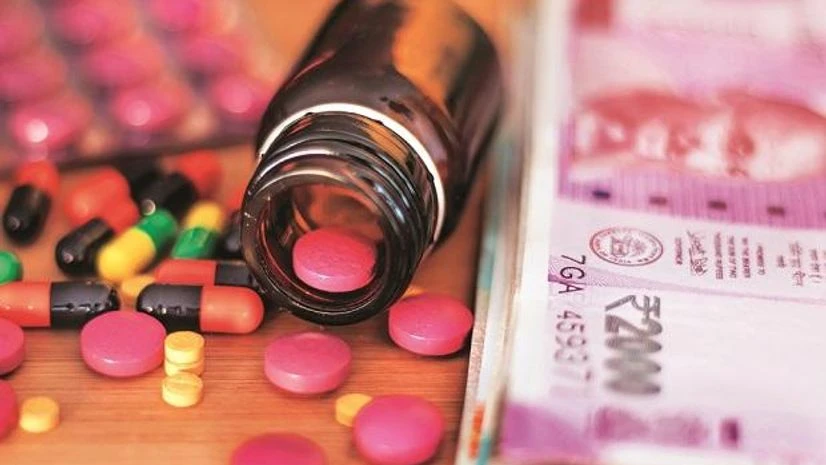Shares of pharmaceutical companies as well as contract drug manufacturing companies (CDMOs) experienced significant gains in intraday trade on Tuesday, after a double dose of good news on the domestic as well US market front. On Monday the 54th GST Council of India, in its meeting, reduced the GST rate on cancer drugs namely, Trastuzumab Deruxtecan, Osimertinib and Durvalumab from 12 per cent to 5 per cent.
Earlier, the government had removed the basic 10 per cent customs duty on these three cancer drugs in the Union Budget of 2024.
Trastuzumab Deruxtecan is used to treat specific types of breast cancer and non-small cell lung cancer (NSCLC) in adults. Osimertinib is indicated for NSCLC in patients with certain abnormal epidermal growth factor receptor (EGFR) genes.
Durvalumab is employed alone or with other medications to treat adults with various cancers, including biliary tract cancer (such as bile duct and gallbladder cancer), endometrial cancer, hepatocellular carcinoma (liver cancer), non-small cell lung cancer, and small cell lung cancer.
Post the announcement, Astrazeneca India share price zoomed up to 4.3 per cent at Rs 7,069 per share in the intraday trade on BSE. The company manufactures all the three drugs in India. Alembic Pharmaceuticals who also manufactures Osimertinib drug in India, saw its stock price surging 2.6 per cent at Rs 1,236 on an intraday level.
More From This Section
Besides, the stocks of Indian CDMOs were also in focus on Tuesday, after the US House of Representatives passed the BIOSECURE Act with a vote of 306 to 81 on Monday. The bill has now moved to the US Senate for voting.
What is the Biosecure Act?
The Bill aims to reduce the US biopharmaceutical industry's dependence on China and limit technology transfer to the country. It specifically names five Chinese companies: WuXi AppTec, Wuxi Biologics, BGI, MGI, and Complete Genomics. Companies collaborating with these entities will be ineligible for grants, loans, and contracts from executive agencies. However, a grandfather clause allows companies eight years to fulfill existing contracts with these Chinese firms.
These developments have positively impacted the stock prices of Indian CDMO companies, which appreciated by up to 6 per cent intraday. This boost is due to the potential for these companies to step in and fill the supply gap left by the Chinese firms.
Individually, shares of Laurus Labs rose up to 5.55 per cent at Rs 517.90 per share, Akums Drugs and Pharmaceuticals shares locked in 5 per cent upper circuit at Rs 910.55 a piece, and Piramal Pharma shares rallied 5.80 per cent at Rs 229.70 a piece.
While Divi’s Laboratories shares surged 4.12 per cent at Rs 5,386.10 per share and Syngene International stock soared 4.99 per cent at Rs 938.35 per share in intraday deals.
According to analysts that rival contract manufacturers located in India, Japan, Europe, and America stand to benefit from the bill.
Those at InCred Equities said, Government incentives like the production-linked incentive or PLI scheme, foreign direct investments and low manufacturing costs have made India an attractive CDMO destination for companies seeking cost-friendly alternatives to China.
According to analysts that rival contract manufacturers located in India, Japan, Europe, and America stand to benefit from the bill.
Those at InCred Equities said, Government incentives like the production-linked incentive or PLI scheme, foreign direct investments and low manufacturing costs have made India an attractive CDMO destination for companies seeking cost-friendly alternatives to China.
"In Indian CDMO companies like Syngene and Aurobindo Pharma are positioned well to benefit from the Bill due to their cost effectiveness," analysts at InCred Equities wrote in a report.
At 01:27 PM; the share of Astrazeneca India were trading 0.91 per cent higher at Rs 6,830 per share on the BSE, while Alembic Pharmaceuticals was trading 1.56 per cent higher at 1219.10 per share. Meanwhile, at the same time shares of Laurus Lab and Piramal Pharma were trading 3.34 per cent and 2.90 per cent higher respectively.

)